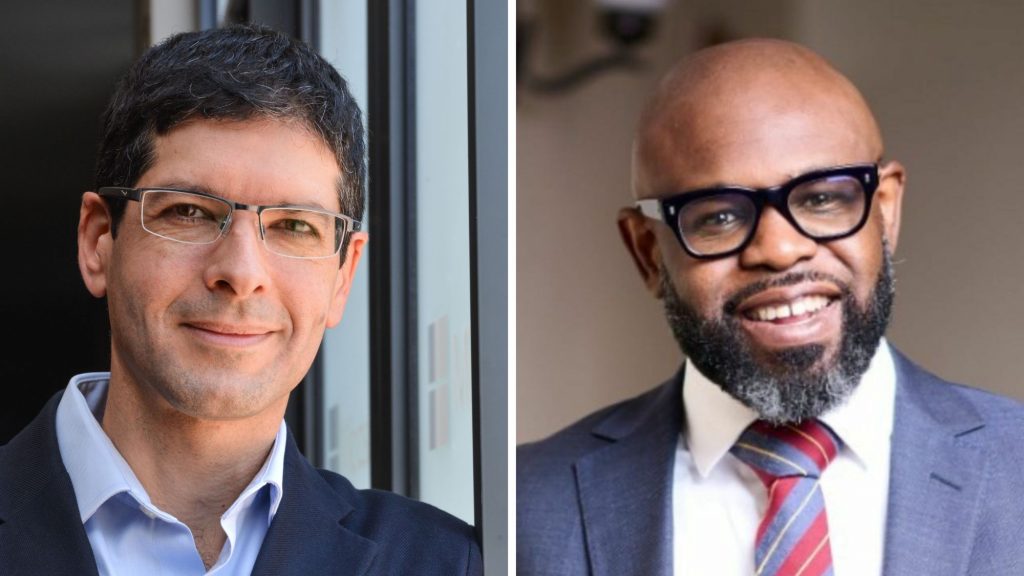We all have them. Those apps we open without thinking. Not because we need anything in particular, but because they feel… safe, in some…
Microsoft on a mission to help African start-ups scale

“South Africa is well established as one of the top four start-up ecosystems on the continent, and is leading the way for successful exits with more than one-third of the acquisitions across the African tech space since 2015.”
This is the view of Microsoft South Africa commercial partner director Lionel Moyal. Speaking on the sidelines of the Start-up Summit in Cape Town, he confirmed the technology giant’s commitment to nurturing and supporting proudly South African start-ups.
Microsoft, through its Africa Transformation Office (ATO), hosted a meet-up for start-up founders and entrepreneurs, which focused on the essential role of the founder within the start-up ecosystem. The meet-up examined the vital role that corporate organisations, venture capital investors, tech accelerators and incubators can play in accelerating startup innovation and growth across the continent.
This event is part of Microsoft’s initiatives to accelerate the growth of 10 000 African startups and fast-track investment in Africa’s startup ecosystem over the next five years.
Founders attending the event had the chance to network with fellow entrepreneurs and hear from start-up success stories including Q-Hop and BancX.
Q-Hop offers a contactless, cashless check-out solution to retailers, using a mobile app. The company provides customers with hyper-personalised promotional offers, and retailers with real-time unique data insights. Microsoft worked with the team to provide technical support including a review of their solution architecture and the development of ground-breaking AI algorithms.
BancX is a fintech platform that helps companies and banks on the embedded finance and Banking as a Service (BaaS) journey, redefining digital banking and financial services and enabling customers to win in the digital-first economy.
Azure is a key component in BancX’s vision to change the financial services landscape in Africa and beyond. Microsoft’s ongoing commitment to BancX, through its various initiatives, provides further fuel for the start-up’s growth.
Technical sessions included workshops on accelerating product innovation at scale, fund raising during times of global financial crisis, how and why to consider geo-expansion and how to benefit from GitHub Sponsors. Attendees also learned more about the benefits of being a part of Microsoft’s Founders Hub.
“There is huge potential for Africa to become a thriving hub of digital innovation on the global start-up landscape. Our ambition is to see an explosion of local invention and innovation that will contribute positively, not just to Africa’s digital economy, but to global society,” says Kunle Awosika, managing director for Microsoft Africa Transformation Office.
Microsoft backs African start-ups
Microsoft has created partnerships with accelerators and incubators across Africa, including Grindstone, Greenhouse, FlapMax and Seedstars to provide industry-based start-ups with access to markets, technical skills and funding opportunities. The ATO has also designed and sponsored business and technical acceleration programmes for start-ups in partnership with three accelerators in South Africa, Kenya and Nigeria.
The ATO has engaged with more than 1 500 African start-ups through a series of online and physical engagements, and hosted 10 start-ups at GITEX in Dubai recently, including South African start-ups Q-Hop and BancX. During the event, they had meetings with potential investors and customers, as well as engagements with the Microsoft leadership team to develop their joint customer pipeline.
‘Access to funding is crucial to ensure success’
To enable African start-ups to rapidly scale using investment funding, Microsoft has established industry alliances and partnerships with venture capital investors that facilitate access to $500 million in potential funding.
Microsoft has already established partnerships with several key venture capital investors, including Banque Misr, Global Venture Capital and Get Funded Africa, and the intention is to grow this network in the next five years to increase funding and enable them to scale up and drive economic growth.
Microsoft has supported a growth partnership with South African partner Technvst to provide 30 African start-ups with access to customers and market expansion opportunities. Other South African based start-ups, including Finclusion, The Awareness Company, Anisoptera, Omnisient and WalletDoc, have engaged with Microsoft on additional growth and market opportunities.
The Founders Hub
Furthermore, Microsoft’s Founders Hub was launched in Africa in 2021 under the ATO. The self-service hub provides access to a wide range of resources, from tools like Microsoft Azure, GitHub and Microsoft 365 to go-to-market and business support. This includes opportunities for start-ups to sell to Microsoft’s corporate and enterprise customers. Microsoft also supports start-ups in geo-expansion activities, where start-ups can scale up by selling in new countries or regions.
“The Founders Hub allows Microsoft to engage with accelerators, incubators and tech hubs across the continent. Our partnerships with key African accelerators provide crucial support to accelerate our South African growth-stage start-ups with their business development and market expansion plans,” says Moyal.
The response to the Founders Hub shows the need African start-ups have for such engagement. Microsoft is currently supporting more than 1 000 African start-ups on the Founders Hub, through Azure credit, Dev tools, access to mentors and technical support, including nearly 150 South African start-ups.
“Our goal is to enable start-ups to rapidly scale using investment funding, and by providing access to skilling programmes, access to markets, and access to technology, with support from our engineering and product teams for co-innovation opportunities. We believe that start-ups can contribute significantly to developing Africa’s digital economy and contribute to the wider economic growth of Africa,” says Awosika.
ALSO READ: Can Africa’s start-up sector keep up its record funding run?

